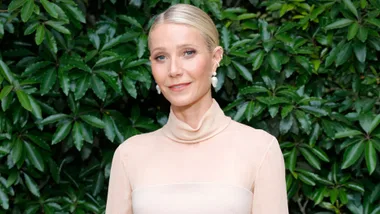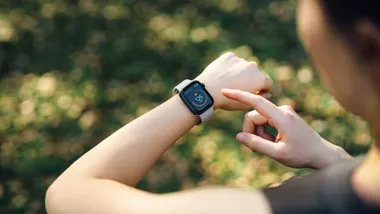Thought that eating tofu and avoiding high fat foods was keeping you trim? Think again: a professor of biochemistry has revealed the foods that REALLY help you lose weight and the results may surprise you
A new book has been released, researching what a healthy diet should really look like – and it’s not necessarily what you think. Titled Know What to Eat, the book has been co-authored by Professor of Biochemistry Rodney Bilton of Liverpool’s John Moores University and Dr Laurence Booth. The pair have spent 15 years on their research and through their recommendations, they hope to help lower the risk of cancer, heart disease and diabetes. Here is a list of some of their Dos and Don’ts:
DO: Eat unripe bananas
Green bananas, along with whole grains, vegetables and fibre are all good for you as they contain something known as resistant starch. This is a carbohydrate that stops your blood sugar level rising as well as maintaining it to help eliminate feelings of hunger. Professor Bilton advises that the Commonwealth Scientific and Industrial Research Organisation recommends eating at least 20g a day of resistant starches – while in the Western World we currently only consume 3-7g a day.
DON’T: Mash your potatoes
Bilton and Booth’s philosophy is that avoiding sugar is the key to a healthy diet, and about 25 percent more sugars are released from potatoes when they are mashed, compared to cutting them into chips. This goes for other carbohydrates too that contain large granules of starch: by heating and then grinding or pureeing them, it breaks open the membrane that surrounds the starch granules, thereby converting that starch into sugar. The same would go for apple puree vs eating a whole fresh apple.
DON’T: Eat tofu
They advise vegetarians to be wary of consuming large amounts of tofu as an alternative to meat as it contains larges amounts of phytic acid which can block absorption of essential minerals such as calcium, magnesium, copper, iron and zinc.
Bilson told the Mail Online: “Many scientists agree that diets high in phytates derived from soy have contributed to widespread mineral deficiencies in Third World countries, even in areas where minerals are not in short supply.”
So how to avoid this problem? Follow the lead of traditional Japanese diets and consume tofu with miso, which contains a bacteria that lowers the acidity.
DO: Eat fats
Professor Bilton and Dr Booth advise on their website that “Contrary to popular belief, saturated fat is an excellent source of calories in a healthy diet and can displace carbohydrate as the main calorie source.” They advise that meals that are high fat promote hormone glucagon, which promotes the breakdown of fat in the body. Of course it all depends on what kinds of fat and they warn to avoid toxic trans fats such as Omega 6 fat (found in corn, sunflower and soya oil to name a few).
DON’T: Drink Smoothies
Professer Bilton and Dr Booth warn against the dangers of fructose, which can be found in high abundance in smoothies and fruit drinks. Fructose is the most dangerous of sugars because it bypasses the insulin system and thereby doesn’t stimulate the body to produce insulin or hormones that will suppress appetite. As a result, fatty substances can build up in the liver, leading to obesity and type 2 diabetes.
DO: Consume lots of water
It helps reduce back pain and assists with weight loss by helping avoid dehydration. They also recommend adding water when you fry food, as is often done in traditional Chinese cooking. This is to prevent the cooking oil overheating and producing toxic chemicals called lipid peroxides which can increase the risk of cancer and heart disease.
DON’T: Eat too many refined carbohydrates
This is the main message of the book’s authors. As they advise on their website: “A diet with refined carbohydrate as the main source of calories is responsible for the epidemics in obesity, diabetes, heart disease and cancer… and may cause neuro-degenerative disorders like Parkinson’s disease and Alzheimers.”
They advise that: “the persistent high blood sugar of a carbohydrate based diet contributes to chronic inflammation”. This can ultimately lead to strokes, heart attacks and haemorrhages. Most tumours also require glucose in order to grow and gain abundance and therefore many cancer patients are recommended to undertake a low-carb diet. Of course Type 2 Diabetes is also big risk too.
DO: Eat like a Masai warrior
This comes back to their argument about eating a low-carb, high fat diet. Professor Bilson writes:
“East African tribes such as the Masai and the Samburus consume up to 400g of animal fat daily. In [Western diets] 60g a day is thought healthy.The tribespeople show low cholesterol levels and an absence of heart disease. When populations of such people migrate to other areas where refined foods high in carbohydrates are consumed, their levels of so-called ‘bad’ LDL cholesterol rise.”
REMEMBER: The real enemy is HUNGER
Manage your hunger is they to managing your diet – therefore eating foods that take longer to digest – such as nutritious protein and fat – will be more effective in curbing hunger cravings.
Always see a doctor or professional before starting anything new**










